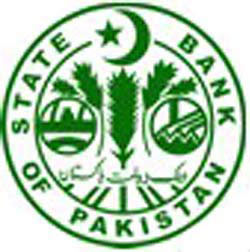SBP’s expansionary stance comes to a halt
Sunday, December 18th, 2011 12:49:52 by Hammad Malik
The State Bank of Pakistan, in an unexpected move on Saturday, October 8, slashed the discount rate by 1.5% (150 bps) in a bid to kick-start economic activity in the country. However, how far this move will help in facilitating the aim is still not certain.
This cut, the biggest of its kind in over ten years, came at a point when the financial markets were experiencing a net outflow of foreign investment and the Pakistan rupee hit a record low against the US Dollar. At this point in time, analysts have termed
this move as short-sightedness of SBP.
With rupee depreciating rapidly, foreign investors are bound to withdraw their investments from financial markets because of no real capital gains. With crumbling law and order situation and creeping inflation in the mix, a lot more than just an interest
rate cut needs to be done.
The money supply is expected to increase in the aftermath of this policy, which will not be beneficial to the economy. With rates easing, an increase in the money supply will surely not help the inflation in the economy.
A representative of Elixir Securities pointed out that investment is more constrained by poor law and order situation, political turmoil and energy crisis as compared to higher cost of borrowing.
It is vital to note that although the cut will facilitate in debt servicing and easing fiscal pressures, a depreciating rupee will make it more difficult to repay foreign loans. With debt in plenty on Pakistan, this will not facilitate the economy much.
The timing of this cut has raised many questions as well. The government opted out of a new loan from the International Monetary Fund in the first week of October, just before the announcement was made. With growing tensions between Islamabad and Washington
coupled with lack of sustained foreign funding, an added pressure on the current account cannot be ruled out.
The current account balance now stands in the range of $189 million, after having surged to $1.016 billion last year.
With rupee deteriorating against the dollar and inflation expected to surge in 2012, the government should make prompt efforts to attract investment in financial markets. Although a depreciating rupee helps exports, the government should ensure that the
drop is not rapid because it makes imports expensive as well. Being a developing country, Pakistan heavily depends on imported capital goods.
Short URL: https://www.newspakistan.pk/?p=6499

















